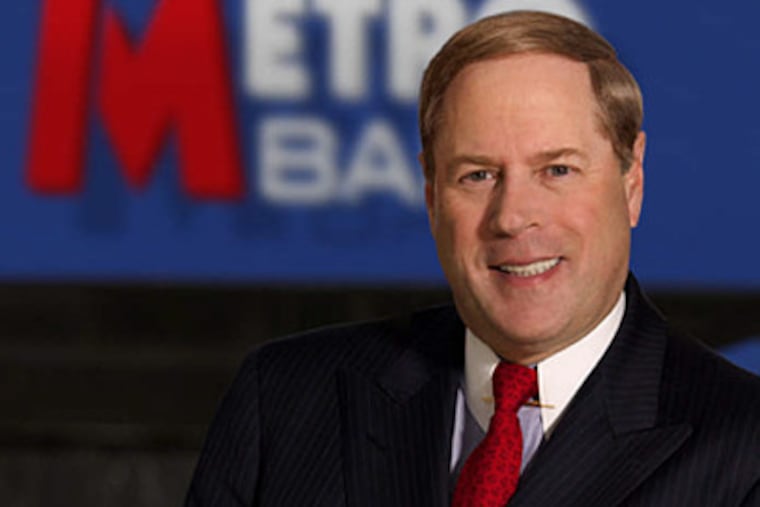Ex-Commerce chief Hill battles for exit pay
From the testimony, everyone agreed that former Commerce Bank chairman, president, and chief executive Vernon Hill, ousted in the summer of 2007 from the bank he founded, deserved to receive the "golden parachute" provisions negotiated in his employment contract.

From the testimony, everyone agreed that former Commerce Bank chairman, president, and chief executive Vernon Hill, ousted in the summer of 2007 from the bank he founded, deserved to receive the "golden parachute" provisions negotiated in his employment contract.
Everybody, that is, except the regulators, including the federal Office of the Comptroller of the Currency and the board of governors of the Federal Reserve.
The question in court now is whether officials of Commerce Bank, now TD Financial Group, tried hard enough to persuade the regulators.
In October 2007, months after Hill was ousted amid regulatory concerns, TD Bank announced that it would buy Commerce for $8.5 billion.
Hill sued the bank and its directors in January 2008 to collect his compensation.
The jury trial, before U.S. District Judge Robert B. Kugler, opened Monday in federal court in Camden with Edwin J. Jacobs of Jacobs & Barbone in Atlantic City representing Hill and William Tambussi of Brown & Connery in Westmont representing the bank.
On the stand Wednesday was John Fisher, a top insurance executive at Commerce who has the same role at TD Bank.
Fisher told the jury that right after Hill left, the bank's board tried to get permission from regulators to get the ousted chairman paid.
Hill received some of what he was entitled to, Fisher said. But most was caught up in regulatory questions on whether "institutions in troubled conditions" should pay golden parachute benefits.
For Hill, those benefits include more than $11 million in salary and bonuses, and stock options worth about $3 million. Interest and lawyers' fees bring the total to about $17 million.
Jacobs asked Fisher why the initial effort was followed by so little action until just before the trial.
Then Jacobs focused on communications between the bank and regulators in early 2013.
The regulators, Fisher said, wanted assurances that the bank had no evidence indicating that Hill had done anything improper before the regulators would agree that Hill should get his money.
Fisher said TD could not give that assurance, despite the fact that Hill had not been charged criminally in anything having to do with the bank.
Pulling legal documents one by one out of a box, Tambussi asked Fisher to tell the jury about the many class action lawsuits and other troubling regulatory paperwork. The lawsuits accused Hill and the former Commerce board of improper actions. Other documents focused more narrowly on Hill.
Those documents, Fisher testified, made him unable to give the regulators the assurances they needed so Hill could get paid.
The thickest was a report about a 2004 and 2005 federal pay-to-play investigation in Philadelphia. Two top Commerce officials were found guilty in that City Hall corruption case.
Hill was not accused, but was picked up on wiretaps talking to Ronald A. White, a power broker in the administration of Mayor John F. Street and a key figure in the case. White died before trial.
Fisher testified that the lawsuits had all been dismissed, that Hill was not indicted, and that a consent decree between the federal government and Hill over insider real estate deals did not require Hill to admit that the statements in it were true.
When Hill first brought his suit, his wife, Shirley, also was a plaintiff, but she dropped out of the case in September 2012.
Commerce's board members were named as defendants, including George E. Norcross 3d and Joseph Buckelew, who are among the partners in Interstate General Media, which owns The Inquirer. The board members are no longer defendants.
her workplace blog at www.philly.com/jobbing.